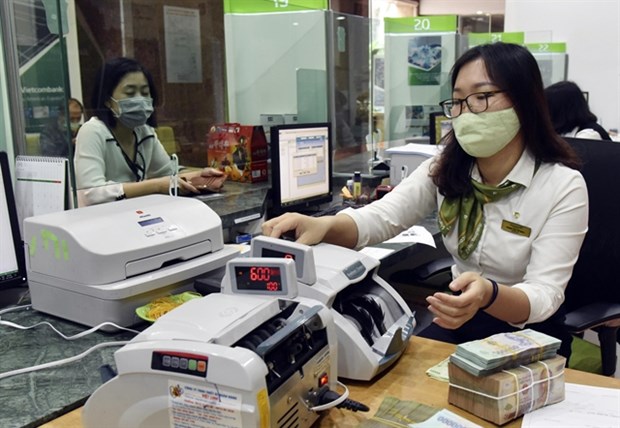Rate cuts since the beginning of the year could have a favourable influence on the stock market, with the expectation that idle cash flows will shift to the stock channel when deposit interest rates fall.

The central bank’s recent policy rate cuts have had a beneficial influence on the market channel, while the market also sees optimism as macro circumstances may progressively improve, said analysts from securities companies.
Last week, the VN-Index on the Ho Chi Minh Stock Exchange (HoSE) closed Friday at 1,107.53 points, up 0.56 per cent. On the Ha Noi Stock Exchange (HNX), the HNX-Index increased 0.36 per cent to end the week at 227.6 points.
Both benchmarks logged another weekly gain, with the former up 1.5 per cent and the latter up 0.7 per cent.
Liquidity rose strongly, with the average trading value of the whole market reaching nearly VND21.3 trillion (US$90.6 million), an increase of 14.9 per cent over the previous week.
Foreign investors also reduced their net selling value on HoSE to VND483 billion, down by 59.2 per cent from the previous week, while increasing their net buying value on HNX-Index to VND91 billion.
ACB Securities Company (ACBS) said that the State Bank's rate cuts since the beginning of the year could have a favourable influence on the stock market, with the expectation that idle cash flows will shift to the stock channel when deposit interest rates fall.
Low interest rates can also boost the profitability of debt-heavy businesses and encourage corporate development by increasing borrowing to seize opportunities from both the domestic and international markets.
However, ACBS also believes that investors’ concerns stem not only from external factors, including the fear of recession due to prolonged high prices, global geopolitical instability, and the shift of foreign investment, but also from internal issues, with the power shortage disrupting production and business activities and remaining short-term risks in the bond market.
There are a large number of corporate bonds maturing in the second and third quarters of 2023.
Experts from ACBS expect a number of important regulations to be considered at the ongoing National Assembly session that will positively affect public investment and industries such as real estate, construction, healthcare, and material supply.
Meanwhile, Saigon - Hanoi Securities JSC (SHS) said that the macro-economic situation is still muted due to the unpredictable geopolitical scenario, a slowdown in global economic growth leading to drops in export orders, and persistently high inflation.
The positive point is that Viet Nam’s interest rates are on a downward trend, and economic organisations such as the World Bank (WB) and the International Monetary Fund (IMF) have revised up their forecasts of global economic growth rates, but still kept them at low levels.
The Government is also actively offering solutions to remove difficulties in the corporate bond and real estate markets. The stock market often reacts early, so it's understandable when the market shifts to an active mode.
The market sees optimism as the macro conditions may gradually improve, said SHS.
According to Viet Dragon Securities (VDSC), despite some corrections in the last session of the week, losses were limited. The liquidity decreased, showing that the supply temporarily cooled down as the index retreated. As a result, the market rebounded towards the session's close, regaining more than half of the points lost in the previous session.
With this supportive move, VDSC forecasts that the VN-Index will likely retest the area of 1,110 – 1,115 points in the next session.
"If the supply in this area shows signs of cooling down, the market can still continue the uptrend, gradually approaching the resistance area around 1,125 points. Investors can hold or capture short-term opportunities in stocks which have good technical signals and attract cash flows. However, it is necessary to consider taking profits at stocks that have increased rapidly to the resistance zone or are under selling pressure at the resistance zone," VDSC recommended. — VNS





